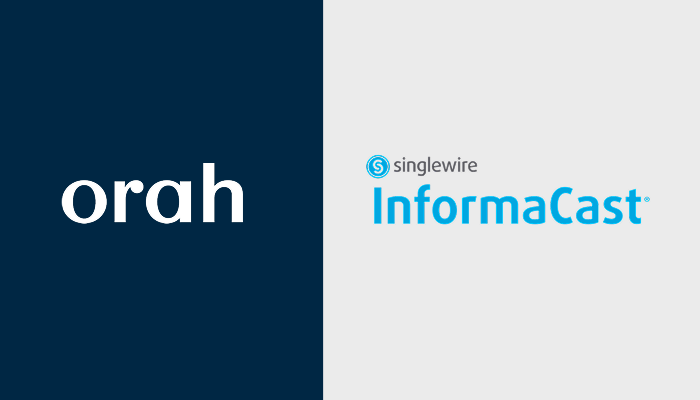Top 3 Security Concerns In Boarding and How To Improve Them
Vincent Paget
•
September 29, 2016

In Boarding, your attitude towards school security will often depend on a distinct point in time.If nothing bad has happened recently, you feel safe and pretty secure. That is until something bad does happen, exposing your vulnerabilities and instantly causing you to rethink your attitude towards security.Randy Doaty, the Director of Security at The Hill School in Pottstown, PA, refers to these points in time as the period Before a Crisis (BC) and the period After the Disaster (AD).In a series of blog posts on the TABS blog, Randy talks about many of the wider issues in boarding school security and the importance of investing your resources in security tools, systems and policies Before a Crisis, rather than wasting it in an After Disaster spending frenzy.At Boardingware, we have the privilege of speaking to different boarding schools around the world everyday. We get to learn about the problems they're facing and what we've discovered is that they all seem to share the same, if not very similar school security concerns.In this post, I’d like tell you about the top 3 school security concerns we hear about most in boarding and share some ideas that may help you address these issues Before a Crisis.
Keeping track of your students
Boarding schools around the world are under enormous pressure to ensure their students safety. Parents are placing greater demands on their children's accountability, and that’s why it’s more important than ever for boarding schools to have a reliable system to track student movements.Old paper-based systems and excel spreadsheets aren’t good enough anymore. They’re slow, inconsistent and simply can’t give you accurate information when you need it most. Yet so many boarding schools continue to use these outdated resources and technologies.

Click here to read Ashley's story
It’s fair to say that these systems would perform poorly in the case of an emergency. Let’s say a fire breaks out at your school. Typically, your first call to action would be to find out where all your students are.This may involve rushing back to your office to collect all your information from different sources (Sign-out sheets, leave folders, clipboards, spreadsheets etc), cross-referencing that information to make sure it’s up-to-date, taking a roll call to check who’s present and then notifying your residential and school security staff about who’s missing and who's been accounted for.Your reaction time is crucial in a crisis like this and there’s just too much room for error here. If you don’t have the right systems in place to move quickly with accurate information, then you’re putting your students safety at risk.It’s important to have the proper tools and technology not only to handle crisis situations like this, but also to manage any risks associated with day-to-day activities. Essentially, your system must provide you with consistent and accurate information that can be quickly accessed at any time.Technology that runs in the cloud like Boardingware, has the power to meet those requirements. They can give you a central place to track student information in real-time. This ensures your information is consistent and up-to-date, and since you can access the cloud from any device, you’ll be fully equipped to quickly react to any situation.In fact, we’re about to release a brand new feature that will greatly improve communications and efficiency when performing roll checks. It’s called live rolls, and it’s a way for multiple staff members to work together on a single roll call - Perfect for emergency situations. Make sure you subscribe to this blog if you’d like to get notified when it’s released.(edit: Live Rolls is available now. Read more about it here)
Managing accountability
If something were to happen to a student whilst they're on leave or exeat, would you still be held accountable? Shifting accountability is necessary when students go on leave because there are some situations where you cannot help. The person(s) responsible for a student on leave will depend on the circumstances of that leave (where they are going, who they are going with etc) and each school will have their own policies and practices for managing accountability.However, the common issue here is making sure that the shift in accountability is effectively communicated and understood by everyone.If you fail to properly communicate the transfer of accountability, and something happens to a student whilst they’re on leave, you could easily find yourself in a complex situation that could bring both legal and PR complications.It’s important that all parties involved in the leave process (staff, students, parents, hosts etc) are aware of who is responsible for the safety of the student on leave and how that responsibility will be transferred at each stage of the process.It’s best practise to make sure the terms and conditions are presented every time a student applies for leave. That way everyone must agree to your terms before the leave may be approved, protecting you of any liability and legal complications.With Boardingware, you can set your own custom terms and conditions for each different leave type. You can have a set of conditions for people applying for leave and different set of conditions for people that are approving it. This way everyone has to agree to your conditions every time a leave is made, protecting you and your school from any legal complications. Everything will also be automatically recorded in case you need to provide legal evidence.
Keeping your student data secure
Although your students data and information may be essential to efficiently run your boarding school, it’s imperative that your students personal information is safeguarded at all times.When managing student data, it’s important that the collection, maintenance and use of personal student information is secure and protected from any chance of loss, damage or being shared with the wrong people.Traditionally, boarding schools have stored their boarding information in physical filing systems. However this quickly piles up and ends up taking up a lot of space, making it difficult to maintain and highly susceptible to being lost or damaged in a disaster, such as a fire.The other option is to store your data electronically, either with on-site hosting or off-site cloud storage. The case of on-site vs off-site hosting is a broad topic and really deserves its own post, however for the purpose of this post, I’ll address these options purely from a security perspective.[caption id="attachment_1241" align="aligncenter" width="2355"]

Pros and Cons for On-Site Data Storage[/caption]On-site storage allows you to store your data locally on servers at your school. This means only people on your network will have access to your data. However, it also means that you’ll need people to maintain performance, backups and server uptime which may lead to possible human errors.You’ll also have to actively protect your data from corruption and find a secure location to protect your data from being lost or damaged in a disaster. At the end of the day, your data will be under your control, but it will also be your responsibility to ensure it’s security and availability.[caption id="attachment_1229" align="aligncenter" width="2355"]

Pros and Cons for Cloud Storage[/caption]On the other hand, Cloud storage allows you to store your data on secure remote servers, normally owned by a separate organisation. Cloud storage providers specialise in data security and will generally have better infrastructure, maintenance, and uptime. They can also automatically backup your data regularly.You'll need an internet connection to access your data, but this means you'll also be able to access your data from anywhere. The main disadvantage with off-site storage is that you can't control the downtime periods. Occasionally there might be maintenance periods when you'll have limited or no access to your data.It can also be a good idea to check where your data will be stored geographically. Most cloud providers will have multiple locations and it's good to know that your data is stored within your regions legislations. The other thing to be wary of is to make sure you check your software provider has strong encryption methods, so your data remains secure during transmission to and from the cloud.At Boardingware we take data security very seriously and utilize world class hosting infrastructure from Amazon Web Services, who is also used by some of the biggest companies in the world including Dropbox, NASA and Netflix.We have multiple servers worldwide so we can perform maintenance at times that don't interfere with your work day and also store your data in a location that meets your regions legislations. We also automatically backup your data daily and have military grade encryption to protect your data during transmission. And to express our commitment to data security, we've also signed the student privacy pledge.
Prevention is key
Although these school security concerns may not be a central theme in boarding, it’s still important to be aware of the potential consequences and do the best you can to prepare for them. Investing wisely in proper systems to minimise your risk will be far more effective than dealing with the devastating consequences after a disaster.Boarding management systems are becoming very popular and have been proven to help many boarding programs grasp unprecedented levels of school security. However this is just one method and approach towards school security and I encourage you to find a solution that best fits your boarding environment. Please feel free to contribute your thoughts, idea’s and stories in the comments section below. I’ll reply to every comment :)[marketo-fat form="1107"]
Download your guide to knowing where students are
When you sign up, we'll send you a guide detailing what it takes to setup your daily operations to maintain student location awareness using your routine school processes like attendance, student leave, late arrivals, early dismissals & emergencies. You'll also recieve an invite to join the Orah community and get the quarterly newsletter.





.png)








